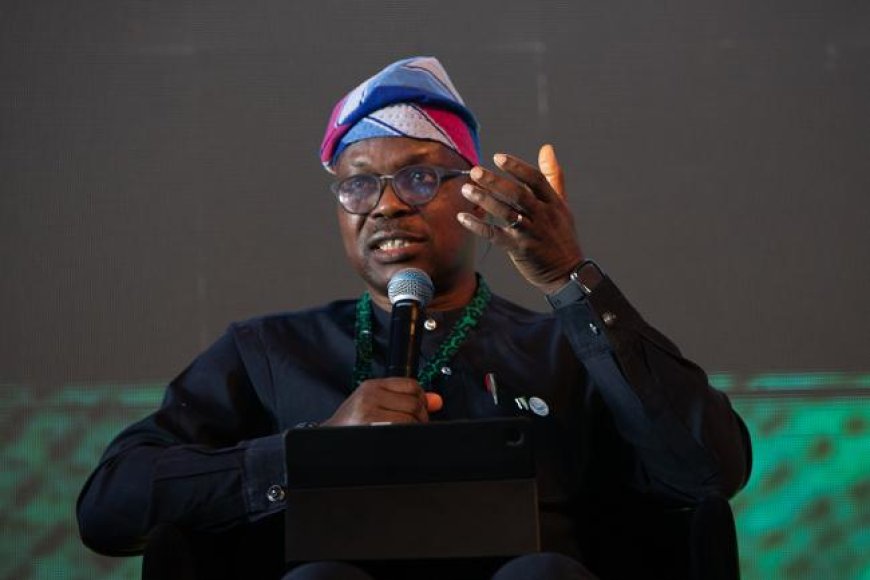FG seeks modern scientific scrutiny of traditional medicine

The Federal Government has stressed the importance of traditional medicine practitioners subjecting their products and practices to modern scientific scrutiny to dispel scepticism surrounding traditional medicine, mainly due to the lack of rigorous scientific evaluation and standardisation.
The government called for investment in research and clinical studies that confirm the safety, efficacy, and quality of traditional medicine remedies.
Minister of State for Health, Dr. Adekunle Salako, who made the call at the commemoration of the 2025 African Traditional Medicine Day in Abuja, stated that strengthening the evidence base for traditional medicine is crucial to ensure its acceptability and integration into the health systems of countries. He added that to achieve this, we must subject our traditional medicine resources to scientific principles of rigorous testing, analysis, and draw replicable conclusions.
He said, “Evidence is the bridge between belief and policy. It is what will allow traditional medicine to move from the periphery to the mainstream of healthcare delivery, not just in Nigeria, but across the continent. Our goal is to promote documentation and standardisation of practices and ultimately the full integration of evidence-based traditional medicine into our national health system”.
Salako observed that long before the advent of modern medical systems, Nigerian communities relied on herbal remedies, spiritual healing, and indigenous knowledge systems to prevent and treat diseases.
He emphasised that traditional medicine remains the primary and sometimes the only source of healthcare for millions of Nigerians, particularly those in rural and underserved areas.
The minister noted that the COVID-19 pandemic reminded the world of the importance of resilient and diversified healthcare systems and also reignited interest in natural remedies.
He stated that Nigeria and the entire African continent must seize this momentum to bring its traditional medicine to the global stage, with evidence as its passport.
According to the minister, traditional medicine in our country therefore possesses a huge potential to contribute to the presidential agenda by unlocking the healthcare value chain, promoting local manufacturing, creating jobs, growing the economy, and improving healthcare access.
The minister stated that, in recognition of the important roles traditional medicine can and should play in the health system, the Federal Ministry of Health and Social Welfare, along with other ministries, is taking bold steps to support the development, promotion, and regulation of traditional medicine through key policy decisions, programs, and projects.He highlighted the establishment of the Department of Traditional, Complementary and Alternative Medicine (TCAM) in the ministry, the development of the Traditional Medicine Policy for Nigeria to guide the development, promotion, commercialisation, and integration of traditional medicine into the national health system, and the creation of the Nigerian Herbal Pharmacopoeia and the Nigerian Essential Medicinal Plants List, which documents over 200 medicinal plants with their botanical/family names, common names, local names, parts of the plant used, and medical uses.
Salako recalled that at the 62nd meeting of the National Council on Health held in Asaba, Delta, it was resolved that all 36 states of the federation and FCT should establish Traditional, Complementary and Alternative Medicine Departments/Boards. He called on all states of the federation that have not yet implemented this resolution to prioritise and implement it quickly.
He assured that President Tinubu is committed to strengthening the evidence base for traditional medicine by increasing investments in research and innovation and empowering our universities and research institutes to collaborate with traditional healers to document indigenous knowledge, isolate active compounds, and conduct clinical trials.
“We will continue to encourage ethical bioprospecting, ensuring that benefits from discoveries are shared fairly with the communities and knowledge holders. We must ensure that traditional medicine is safe, effective, and accessible and that intellectual property rights of indigenous communities are protected”, he added. The minister unveiled two documents that have been produced to support evidence-based traditional medicine practice, including a Strategic Plan for implementing the Traditional Policy, as well as the Code of Conduct and Ethics for Traditional Medicine.









